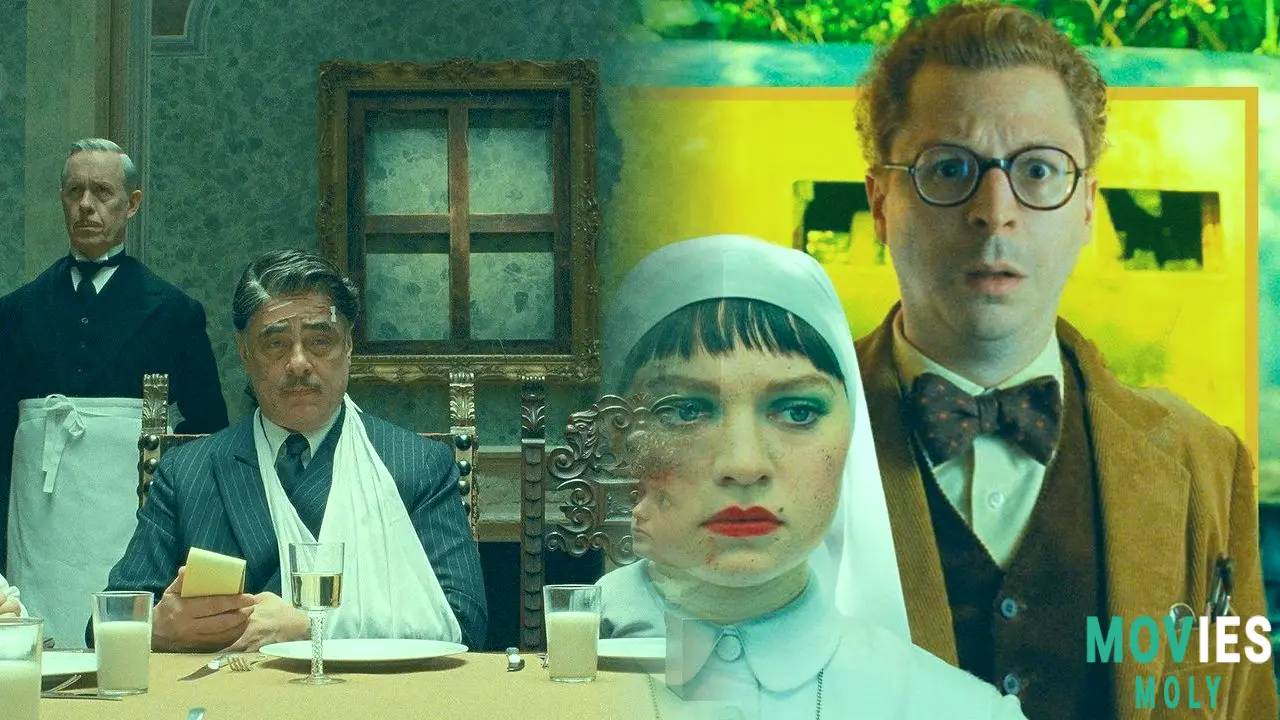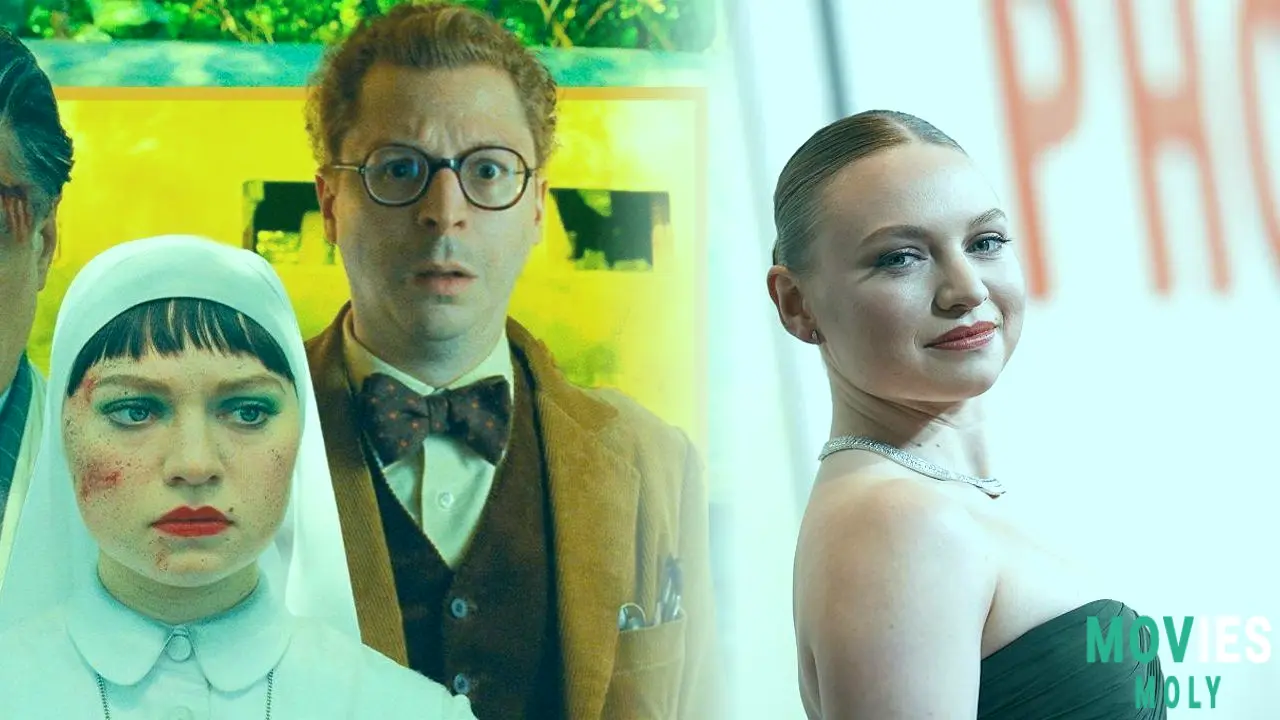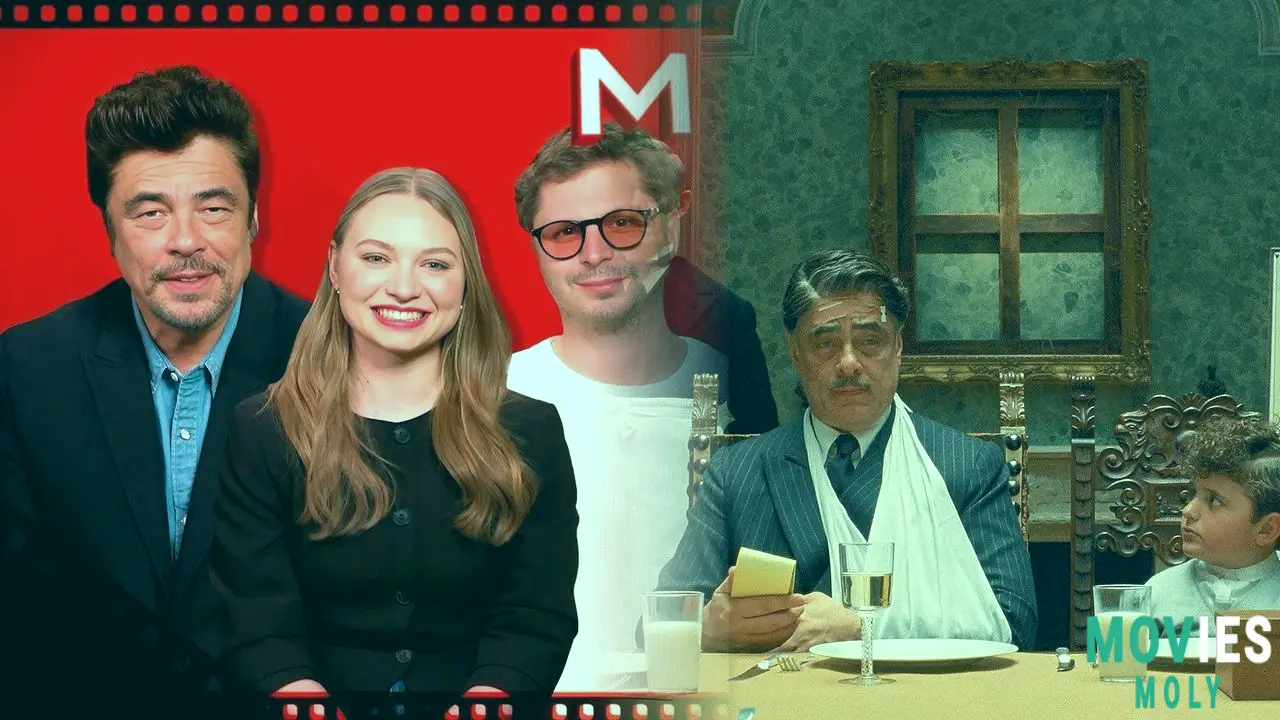Wes Anderson has a very specific style that you can spot from a mile away. It is full of perfectly centered shots, bright colors, and actors delivering lines in a very flat way. His newest movie, The Phoenician Scheme, just arrived. This has many of us talking about his films again. I often wonder what it would be like to see one of his movies for the very first time, without knowing anything about his other works. Would it still hit the same way?
There is a common habit of making every new Anderson movie a big test for his entire career. His movies feel like objects on a collector's shelf, always ready to be sorted and re-evaluated. For some, his style can be too much, making his films feel a bit distant or like carefully built toys that lack feeling. But for me, Anderson's choice to keep going with his very particular style has sometimes led to great moments in his more recent work.
For instance, The Grand Budapest Hotel, one of his first movies to deal with a real historical tragedy, managed to mix funny moments with deep sadness. It showed an old European resort just as World War II was about to begin. It struck a really nice balance. Even though I was not a big fan of his previous film, Asteroid City, I still admired how he pushed his usual boundaries in that one. He explored new territory for his storytelling.
Unpacking The Phoenician Scheme And Its Place In Wes Anderson's Film CatalogHow Viewers Might React To His Latest Work, Whether They Are New Or Old Fans
Let's pretend for a moment that I am seeing The Phoenician Scheme as my very first Anderson movie. It does not make me happy to say that I would probably feel confused, often bored, and put off by how the film treats everything. It handles both happy life moments and painful, violent ones with a very even, slightly detached tone. This can be a challenge for some viewers. For example, in the opening scene, the private plane of the main character, Anatole "Zsa-zsa" Korda (Benicio del Toro), gets bombed in midflight. This is the sixth time someone has tried to kill Korda, a proud war profiteer. The attack misses him, but his young assistant gets blown in half. It is a shocking image, both gruesome and oddly neat. It is a wild way to start a movie.
The film is supposed to tell the story of Zsa-zsa becoming a kinder person. However, it does not really deal with the moral questions that the opening scene brings up. Why would we laugh at that cartoonish death? Did that assistant's death matter in the world of the movie? We are meant to care about his replacement, Bjorn (Michael Cera), a nerdy insect expert. We are also supposed to care about Zsa-zsa's eldest daughter, Liesl (Mia Threapleton), who is a nun. She has a strong sense of justice and a mix of religious clothing and red lipstick. These characters are supposed to draw us in.
On their trip around the fictional nation of Phoenicia, these three meet many unusual people. Riz Ahmed plays a protected prince. Mathieu Amalric plays a nightclub owner. Scarlett Johansson plays a rich cousin. Even F. Murray Abraham, Willem Dafoe, and Bill Murray appear in small parts. But the question of which characters truly matter, beyond just showing up, stays with you. For instance, Liesl has nine younger, adopted brothers. They live in their father's fancy house like Dickensian orphans. We do not learn anything about their backgrounds. What are their names? How old were they when Zsa-zsa adopted them? What were the circumstances of those adoptions, especially given his shady dealings? Do these boys also want revenge on their cold father? The movie leaves many of these questions unanswered.
Zsa-zsa, played by Del Toro, is meant to be a character like Royal Tenenbaum, someone who is bad but also a bit sad. His long history of putting his own needs first is meant to be a forgivable sin. But the way Del Toro plays him does not quite reach that level. The script, written by Anderson and Roman Coppola, does not really show how this man became so separated from his children. It also does not show how he finds his way back to them. We know he will make up with his daughter because the story tells us he must. But their getting back together feels like something forced by the script, not a real human connection. Threapleton's acting as the angry nun is quite funny. She is Kate Winslet’s daughter, but she is certainly not just a "nepo baby." However, the movie keeps her pain and anger with her father at such a distance that I could not care about either character. Despite its beautiful shots and clever sets, the whole movie felt like it was behind a thick pane of glass that kept emotions out.
The Enduring Appeal Of Wes Anderson's Distinctive Visual And Storytelling Style

From Literary Inspirations To A New Criterion Collection Box Set For Fans
Wes Anderson has romanticized books and writing for most of his career. His love for J.D. Salinger shows up in The Royal Tenenbaums, which gets some ideas from Franny and Zooey. The Grand Budapest Hotel was openly inspired by Austrian writer Stefan Zweig’s The Society of the Crossed Keys. And Jacques Cousteau’s Diving for Sunken Treasure fueled the ocean focus in both Max Fischer from Rushmore and Steve Zissou from The Life Aquatic.
All of this explains why there are so many novels, non-fiction books, and plays in Anderson’s own films. These "prop books" and literary references are part of his recognizable style. Some of his homages are better than others. For example, some of his fictional book titles and descriptions shared by others are a bit hard to follow, like the one about a young boy's mysterious medical condition that is too vague. Others, like the one about a stranded Jupiterian, are just fun with great artwork. And some, like "Erotic Transference," offer unexpected depth in their short form. My personal favorite is "The French Dispatch," which collects world-class reporting and feels like a must-have for magazine fans. It is clear that literature plays a big part in building his worlds.
For dedicated fans, Criterion is releasing a new box set called The Wes Anderson Archive: Ten Films / Twenty-Five Years. It is coming out on September 30. This set includes his first 10 films, from 1996's Bottle Rocket to 2021's The French Dispatch. Movies like Asteroid City, The Wonderful Story of Henry Sugar, and The Phoenician Scheme are not in this collection. The box set costs $500, which is a lot, but it is in 4K UHD quality and overseen by Anderson himself. It has 20 discs: 10 for the movies and 10 for bonus content. The cases are made to look like books, which is a nice touch for fans of his style. Criterion says the set shows Anderson’s "irrepressible creativity" and his stories about outsiders and dreamers, with a "mischievous wit" and "existential melancholy."
The Enduring Appeal of Wes Anderson for Actors and Audiences Alike

Why His Unique Vision Continues To Attract Big Names And Loyal Viewers
Working with Wes Anderson is something many actors dream about. Mia Threapleton, who plays Liesl in The Phoenician Scheme, said she wanted to work with him since she was 13. She wrote it in her journal when she watched Moonrise Kingdom. For her, working with him was a dream come true. She found the Cannes Film Festival premiere terrifying, but being with the cast made her feel calmer. They felt like a family. This shows that despite his specific methods, Anderson creates a good working environment for his actors.
The standout performance in The Phoenician Scheme is Michael Cera as the Norwegian insect enthusiast. His quiet delivery works perfectly with Anderson's quick, quirky dialogue. It is surprising that Cera has not worked with Anderson before. I hope he does again. Even with a huge cast that includes big names like Tom Hanks and Bryan Cranston, Anderson’s films still let individual performances shine.
Even if The Phoenician Scheme is not everyone’s favorite Anderson movie, I still find myself wondering what he will do next. He is always imaginative and often brilliant. His movies sometimes feel familiar, but they still have a certain spark that makes them distinct. He has built a recognizable cinematic world that fans love to discuss and even copy. This lasting influence means Anderson will continue to be a filmmaker who gets people talking, for better or worse. His work always has something interesting to say, or at least show.



